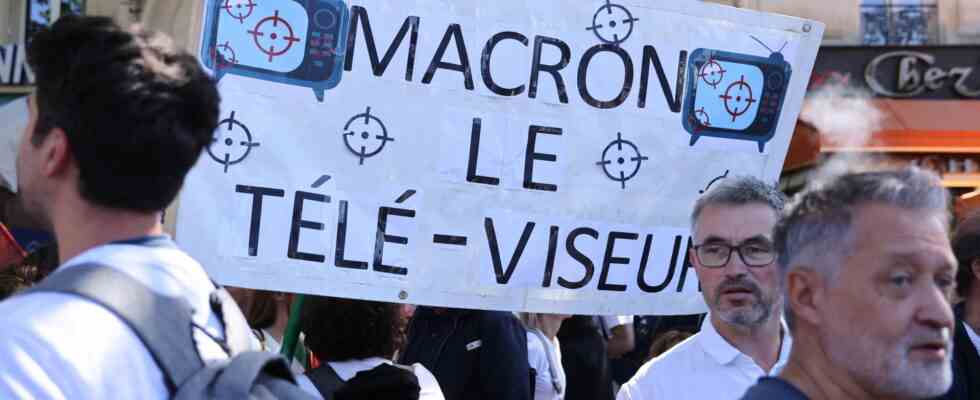Status: 08/14/2022 05:26 am
France’s Constitutional Council has approved the abolition of broadcasting fees. However, he has imposed strict requirements on the government to guarantee the independence of the broadcasters.
France’s constitutional council, the Conseil Constitutionnel, is not taking a summer break – it has now not only approved a 20 billion euro purchasing power package, but also the supplementary budget for 2022 in a communiqué. This includes the abolition of broadcasting fees. So now it’s constitutional.
The Council justifies its decision: The legal text does not disregard the requirements of Article 11 of the Declaration of the Rights of Man and of the Citizen of 1789.
It says: “The free communication of thoughts and opinions is one of the most precious human rights. Every citizen can therefore write, speak and print freely subject to responsibility for the abuse of this freedom in the cases determined by law.”
Government and opposition see themselves confirmed
A victory for the government, Prime Minister Borne celebrates the decision. 138 euros more per year in every household with a TV set that has not been exempt from the fee like the poorest in society. 38 cents a day – a real gain in purchasing power with more than six percent inflation?
Nevertheless, the opposition has achieved something. Because the Constitutional Council has established clear rules and stipulated that it will act as a kind of judge to ensure that they are respected.
Abolition, the panel said, could jeopardize the funding resources of public service broadcasting and thus an element of its independence. Therefore, the sages, les sages, as they are called in France, have imposed on the legislature to set the level of revenue in advance so that the media concerned can fulfill the public task entrusted to them.
Budget stays the same
But the Constitutional Council has two reservations: for 2022, the financial allocations, which now come from part of the sales tax, must be just as high as the income from the license fee for the same year. In principle, that is the case – the law states 3.7 billion euros for the coming year. And for 2023 and 2024, the amount must be fixed in the budget law.
More than 120 members of the largest opposition alliance in parliament, NUPES, with left-wing foreign politicians up to the Greens, and socialist senators had appealed to the constitutional council because the alternative financing via part of the value added tax did not give the public broadcasters any budget security.
From 2025, the VAT, which is now used temporarily for financing, like other taxes, may no longer be used in a different way by law. The presidential camp already assures: The value added tax will not be raised for this reason.
Secured by state treaty
The radio license fee was the main source of income for Radio France, France Télevisions, for foreign offers such as TV 5 Monde, for the radio archive INA, for orchestras and choirs or the project with Germany ARTE. On the French side, 95 percent of this has depended on the broadcasting fee, but it is secured by a state treaty.
To date, 23 million households have paid broadcasting fees. It had existed in France since 1933. Its abolition was a campaign promise made by President Emmanuel Macron, who was re-elected in April – a success for him.
The abolition of fees was passed by the National Assembly at the end of July and by the Senate at the beginning of August. It brought in more than 3.1 billion euros this year, not even half as much as in Germany. The state added 600,000 euros.
In November, the fee will no longer be collected for the first time. Its abolition will take effect this year. This will trigger political debates again in the autumn.
France’s Constitutional Council approves the abolition of broadcasting fees
Stefanie Markert, ARD Paris, August 13, 2022 11:00 p.m

